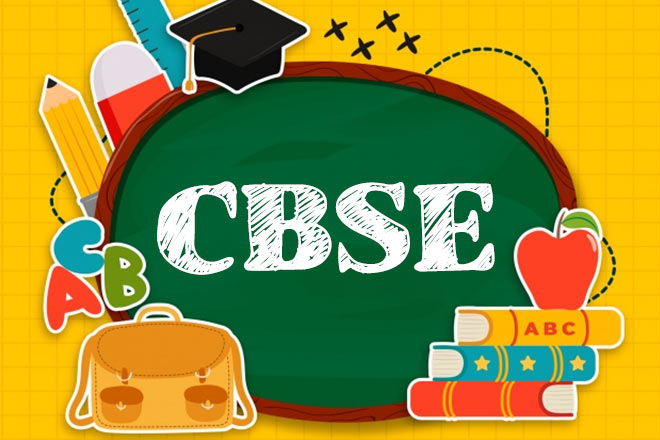Tinkering with school syllabus a bad move, doesn’t bode well for democracy

By Asad Mirza, TwoCircles.net
In a completely uncalled for move, the Central Board of Secondary Education (CBSE) has revised its syllabus for students of Classes 9 to 12 in the name of handling the stressful situation of teachers and students amid the ongoing COVID-19 pandemic.
The Union Human Resource Development (HRD) minister Ramesh Pokhriyal in a series of Tweets, earlier this week said that, “Looking at the extraordinary situation prevailing in the country and the world, it has been decided to rationalise syllabus up to 30% by retaining the core concepts.” This has been done for annual exams for the year 2020-21.
Deleted Topics
CBSE has removed several chapters from various subjects to reduce the course load on teachers and students. Some of the important chapters that have been deleted include Federalism, citizenship, nationalism and secularism from class 11th political science subject besides India’s foreign relations with neighbouring countries and citizenship. A complete chapter on Social and New Social Movements in India from class 12th political science paper has also been removed. Demonetisation from class 12th Business Studies paper has been removed too besides Colonialism and the countryside colonial cities and understanding partition from class 12th History subject. A complete topic on GST from class 11th Business Studies subject also got removed. Complete chapters on population, democratic rights and food security in India from class 9th social science subject. Besides a chapter on girl education by renowned Hindi writer Mahavir Prasad Dwivedi has been deleted from class 10th Hindi subject.
The board also said that it has asked the heads of schools to ensure that the topics that have been left out are explained to the students to the extent required to connect different topics. The reduced syllabus will, however, not be part of the topics for Internal Assessment and year-end board examinations.Though the CBSE’s move is purported to lift the burden off the shoulders of students and teachers in the immediate term and allow them to pay more attention to the quality of learning. Yet, the selection of topics deleted from the textbooks makes one wonder over the rationale to pick these particular topics or chapters. Most of the deleted topics form the foundation of democratic societies and students need to learn about these to enhance their knowledge base. The irrational exclusions smack off a political tone i.e. to keep a large and young part of the population unaware of these issues. We should not forget that depriving the young generation of its right to increase its knowledge base is not only authoritarian but it might also boomerang.
In its defence, the CBSE also issued a press statement, citing the pandemic and NCERT recommendation for the syllabus revision. So far, only the West Bengal Chief Minister Mamata Banerjee from the Opposition ranks has criticised the move.
A careful study of the deleted topics reveals that they include issues, which the current leaders do not want most people to know or discuss. Instead, it wants to insert a completely new narrative on these issues based on its ideological lines. We should remember that Sangh ideologues had been working surreptitiously on rewriting the Indian history school textbooks for the last 25 years and they have now been made part of the syllabus. But the move didn’t attract much attention due to the surreptitious manner in which it was done.
Draft National Education Policy (NEP) 2019
The overall intent and decision maker’s mindset will be clearer, if we make efforts to study the Draft National Education Policy (NEP) introduced in 2019, in tandem with the latest move.
The NEP was expected to change the government funding on education, the structure of school education, the curricular design for school and higher education, the nature of teacher training and recruitment, among others.
However, a critical study of the 484-page NEP 2019 reveals an issue deserving of wider, more heated opposition. The words “secular" or “secularism" are not found anywhere in the NEP 2019. Though a clear reference to secular education was vital to be seen as the base for these ambitious reform proposals.
The absence of the word “secular" in the NEP 2019 becomes all the more pronounced when seen in contrast to the earlier policies of mentioning secularism as a core Indian value for the Indian education. The omission of the words “secular" and “secularism" in the NEP 2019 is ominous, along with the frequent affirmation of its aim of inculcating constitutional values in the education system, making it doubly odd.
In contemporary India, which has seen a sharp rise in caste and religious violence, the curriculum and teaching methods in Indian classrooms have a key role to play in making caste and religious prejudices in society irrelevant and out of time. The challenge is to find fresh and creative ways of making young minds grasp these difficult contemporary social realities.
You have to understand that you can’t hide history by giving it a new twist. Even in countries like the UK, there are demands to teach medieval history to school students. If the government thinks that by hiding the truth on its controversial decisions, they will be-fool people or hide their misjudgments then they are wrong. History will ultimately judge the present government, whether they like it or not.
Asad Mirza is a senior journalist and commentator based in New Delhi. He was also associated with BBC Urdu Service and Khaleej Times of Dubai. He writes on Muslims, educational, international affairs and interfaith issues. He can be reached at: [email protected].
